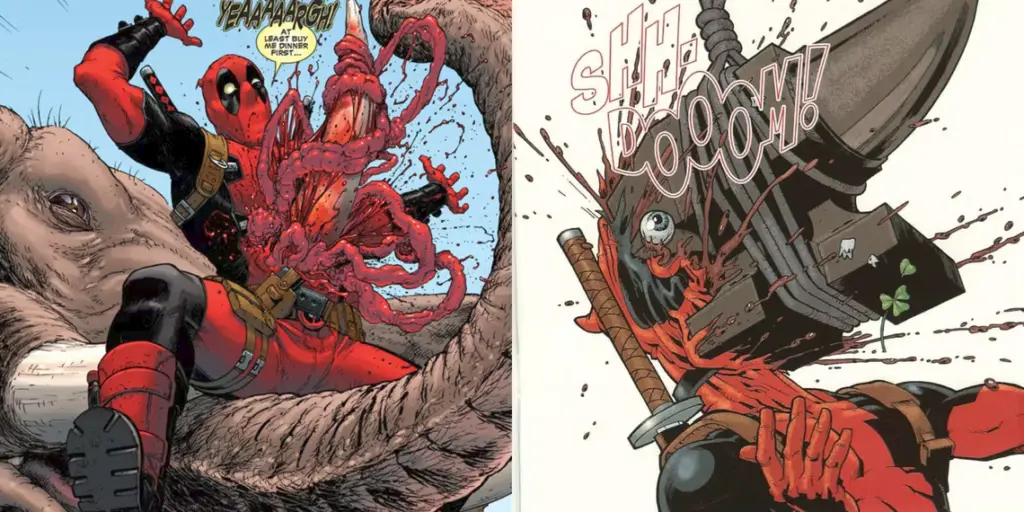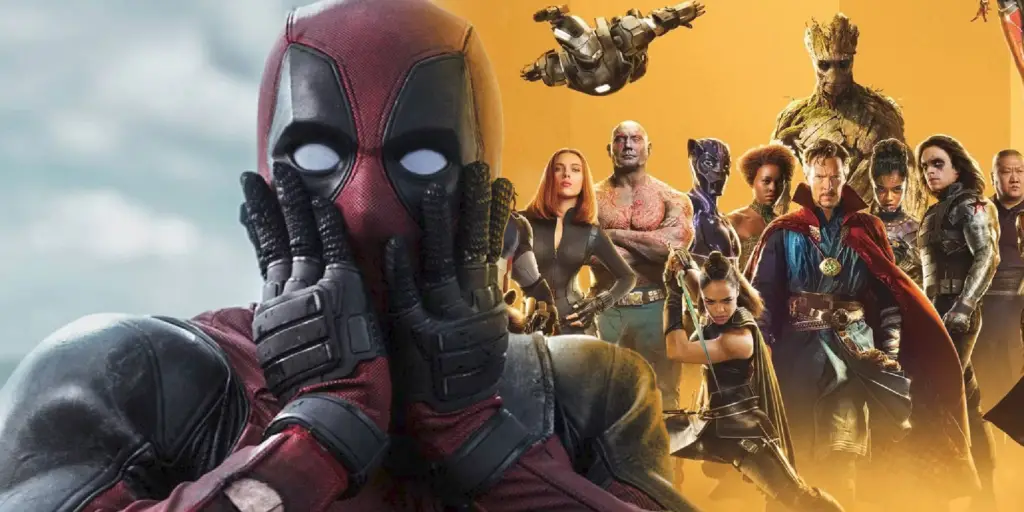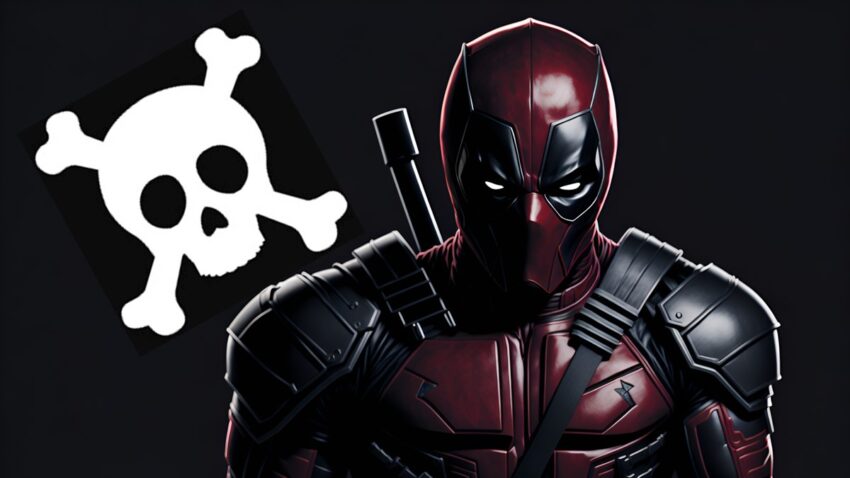Deadpool, the Marvel comic book character known for his twisted sense of humor and fourth-wall-breaking asides, has captivated audiences with his unique brand of humor and violence. Created by Rob Liefeld and Fabian Nicieza, Deadpool first appeared in “The New Mutants” in 1991 and has since become one of the most popular anti-heroes in the Marvel Universe.

One of the defining characteristics of Deadpool is his ability to regenerate from any injury, no matter how severe. This power, combined with his incredible fighting skills and his penchant for breaking the fourth wall, has made him virtually indestructible.
But can Deadpool die for real? This question has been the subject of much debate among comic book fans and writers. On the one hand, Deadpool’s healing factor is so powerful that it can even regenerate his head if severed from his body. On the other hand, there have been instances where Deadpool’s healing factor has been weakened or neutralized, leaving him vulnerable to injury.
So, can Deadpool die? The answer is not as straightforward as you might think. While his healing factor makes him nearly invincible, there are still ways for him to be killed. In this ultimate guide, we will explore the various ways Deadpool can die, as well as some of the theories and controversies surrounding his immortality. So buckle up, because this is going to be a wild ride.
Deadpool’s Healing Factor
Deadpool’s healing factor is arguably his most well-known and defining characteristic. But just how powerful is it? And where did it come from?
Deadpool’s healing factor originated from the same program that gave Wolverine his own regenerative abilities. However, Deadpool’s healing factor was intentionally enhanced by the Weapon X program, making it even stronger than Wolverine’s. This enhancement allows Deadpool to regenerate from virtually any injury, no matter how severe.
But Deadpool’s healing factor isn’t just strong, it’s also fast. He can regenerate entire limbs in a matter of minutes, and his body can quickly recover from injuries that would kill a normal person. This speed and strength of regeneration are what truly sets Deadpool apart from other Marvel characters with healing factors, like Wolverine or the Hulk.
Examples of Deadpool’s healing factor in action are truly jaw-dropping. He’s survived being crushed by a giant hammer, having his head removed from his body, and even being atomized and then reforming himself. It’s no wonder that he’s considered nearly invincible.

But as with any power, there are weaknesses. Deadpool’s healing factor can be suppressed or neutralized by certain drugs or technology. And while he can regenerate from virtually any injury, there are still ways to kill him – for example, by decapitating him and then destroying his brain.
In the end, while Deadpool’s healing factor is certainly impressive, it’s not infallible. There are still ways for him to die – but whether he ever will remains to be seen.
Deadpool’s Deaths in Comics and Movies
Deadpool is no stranger to death – in fact, he’s died countless times in the comics. But what do these deaths mean for his supposed immortality?
In the comics, Deadpool has died in a variety of ways – from being impaled on spikes to being devoured by zombies. But despite these deaths, he always manages to come back to life, thanks to his powerful healing factor. However, some of these deaths have had lasting effects on his character – for example, his brief stint as a reaper after he was killed by the Black Talon.

But even though Deadpool can come back to life, these deaths still have weight and significance. They remind us that he’s not invincible and that there are consequences to his actions. And in some cases, his death has even allowed him to gain new abilities or perspectives on life.
In the movies, Deadpool’s deaths have been a bit less numerous, but they still play a significant role in the story. In the first film, he’s seemingly killed by Ajax, only to come back to life thanks to his healing factor. And in the second film, he sacrifices himself to save a young mutant, only to be brought back to life once again.
But what do these deaths mean for Deadpool’s supposed immortality? Do they prove that he truly can’t die? Or do they simply reinforce the idea that he’s nearly invincible? The answer is likely somewhere in between – while Deadpool’s healing factor is incredibly powerful, there are still ways for him to be killed. And his deaths, while not permanent, still have weight and significance in the stories he’s a part of.
In the end, while Deadpool’s deaths may be numerous and sometimes even comical, they remind us that even the most seemingly invincible characters have vulnerabilities – and that’s what makes them interesting.
Ways to Kill Deadpool
Despite his powerful healing factor, there are ways to permanently kill Deadpool. But what are these methods, and how effective are they?
First and foremost, Deadpool can be killed (sort of) by decapitation – if his head is removed from his body, he won’t be able to regenerate. Similarly, if his entire body is destroyed at a cellular level, there’s no way for him to come back to life. And while it’s rare, there are instances in the comics where he’s been killed by more creative means – for example, being vaporized by a laser.
But while these methods may seem foolproof, they’re not always guaranteed to work. In the comics, there have been instances where Deadpool has survived even decapitation, thanks to his healing factor being able to regenerate his head. And in some cases, he’s been able to transfer his consciousness to another body after his original body was destroyed.
In comparison to other Marvel characters with weaknesses, such as Wolverine’s vulnerability to adamantium poisoning or Captain America’s susceptibility to psychic attacks, Deadpool’s weaknesses are less defined and more dependent on the circumstances. And while it’s true that he can be killed permanently, the fact that he’s been able to come back from seemingly impossible deaths time and time again suggests that his immortality is still intact.
In the movies, we’ve seen glimpses of Deadpool’s vulnerability – for example, when he’s impaled on a piece of rebar in the first film. But even in these moments, it’s clear that he’s not truly mortal – he’s able to recover and continue fighting.

So, can Deadpool die? The answer is yes, but it’s not as simple as it seems. While there are ways to kill him permanently, his healing factor makes him incredibly resilient, and his ability to come back from even the most impossible deaths is a testament to his immortality.
Immortality vs. Invincibility
Deadpool’s immortality has been a topic of debate among fans for years, but what about his invincibility? It’s important to distinguish between the two. While Deadpool is virtually unkillable due to his healing factor, he is not invincible. In fact, he’s been beaten, maimed, and dismembered countless times in the comics and movies.
Deadpool’s immortality only extends to his ability to regenerate from almost any injury. However, this doesn’t mean he’s immune to everything. He can still feel pain, he can still be incapacitated, and he can still suffer from mental and emotional trauma. Additionally, there are certain supernatural and cosmic forces that can bypass his healing factor and kill him permanently.
So, while Deadpool may be able to survive almost any physical injury, he is not invincible. His immortality has its limitations, and it’s important to understand them when considering the question of whether or not Deadpool can die.
The Future of Deadpool’s Immortality
Deadpool’s immortality has been a defining trait of the character for decades, but what does the future hold for this iconic power? In the comics, Deadpool has faced numerous challenges to his immortality, from powerful villains to cosmic entities. Despite this, he has always managed to come out on top, thanks to his incredible healing factor.
In the movies, we’ve seen Deadpool’s immortality play out in spectacular fashion, with the character surviving seemingly impossible situations. But with the upcoming introduction of Deadpool into the Marvel Cinematic Universe, there are questions about how his immortality will be portrayed in the future.

Will we see new limitations placed on Deadpool’s healing factor? Will we see him face new challenges that test the limits of his immortality? Or will he continue to be the unkillable force that we’ve come to know and love?
Only time will tell, but one thing is for sure: Deadpool’s immortality will continue to be a defining trait of the character for years to come.
So, Can Deadpool, Die? – The True Answer
After examining the history of Deadpool’s powers, his numerous deaths in comics and movies, the ways he can be killed, and the difference between immortality and invincibility, we can finally answer the question: Can Deadpool die?
The answer is both yes and no. While Deadpool’s healing factor allows him to come back from almost any injury, there are certain ways to permanently kill him. However, in the context of the comics and movies, his immortality is a major aspect of his character and is unlikely to be taken away completely.
Deadpool’s place in the Marvel Universe as a fourth-wall-breaking, antiheroic character with seemingly infinite lives makes him unique and beloved by fans. And with the upcoming release of Deadpool 3, it’s clear that his story is far from over.
So, whether you’re a longtime fan or a newcomer to the Deadpool mythos, one thing is certain: his immortality will continue to be a topic of fascination and speculation for years to come.
We hope you found this article interesting. Come back for more reviews, previews, and opinions on comics, and don’t forget to follow us on social media:
If you’re interested in this creator’s works, remember to let your Local Comic Shop know to find more of their work for you. They would appreciate the call, and so would we.
Click here to find your Local Comic Shop: www.ComicShopLocator.com
As an Amazon Associate, we earn revenue from qualifying purchases to help fund this site. Links to Blu-Rays, DVDs, Books, Movies, and more contained in this article are affiliate links. Please consider purchasing if you find something interesting, and thank you for your support.

